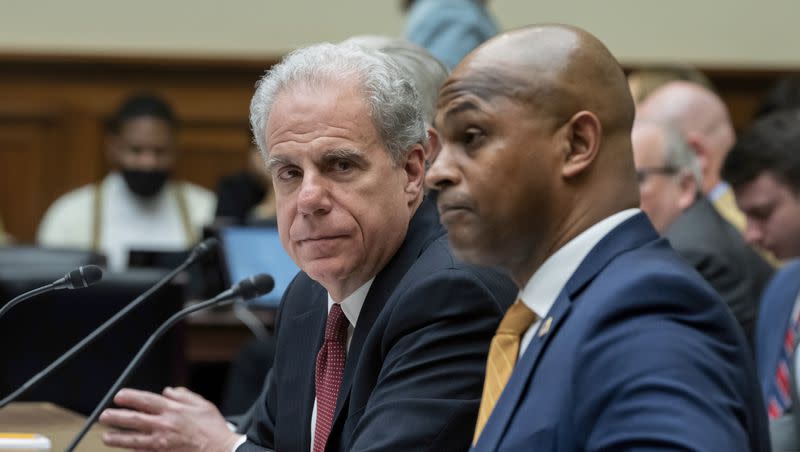Watchdog estimates $200 billion in COVID-19 relief fraud

Two COVID-19 relief funds that funneled federal support to struggling U.S. businesses during the early days of the pandemic may have been bilked for as much as $200 billion, according to an analysis released on Tuesday.
According to the U.S. Small Business Administration’s watchdog Office of the Inspector General’s new report, the SBA, in a rush to provide pandemic assistance loans through its COVID-19 Economic Injury Disaster Loan and Paycheck Protection Program, “weakened or removed the controls necessary to prevent fraudsters from easily gaining access to these programs and provide assurance that only eligible entities received funds.”
“The allure of ‘easy money’ in this pay and chase environment attracted an overwhelming number of fraudsters to the programs,” the Office of the Inspector General wrote in its report. “(The Office of the Inspector General’s) continuing reviews pertaining to oversight of SBA’s pandemic response have identified multiple weaknesses in controls that allowed fraudsters to take advantage of the economic crisis and divert funding intended for deserving, eligible American small business owners.”
The report’s estimate of $200 billion in losses represents some 17% of the estimated $1.2 trillion in funds disbursed through the COVID-19 Economic Injury Disaster Loan and Paycheck Protection Program.
Read the latest @SBAOIG fraud landscape report that comprehensively estimates the potential fraud in the U.S. Small Business Administration’s (SBA) pandemic assistance loan programs. https://t.co/yqdvZlDTiD pic.twitter.com/l7p221zKF8
— SBA OIG (@SBAOIG) June 27, 2023
SBA leaders challenged the findings presented in the Office of the Inspector General’s white paper and characterized the losses to fraud listed in the report as a gross overestimate.
“We are concerned that the white paper’s approach contains serious flaws that significantly overestimate fraud and unintentionally mislead the public to believe that the work we did together had no significant impact in protecting against fraud,” SBA associate administrator Bailey DeVries wrote in a response letter.
Gene Sperling, a senior White House official overseeing pandemic relief spending, told The Associated Press in a Tuesday interview that 86% of the fraud, or potential fraud, in the emergency loan programs happened during the first nine months of the pandemic when President Donald Trump was in office.
“$200 billion is a very big number, but this, again, should be remembered as potential fraud,” Sperling said. “We think the amount of likely or actual fraud is significantly less, significantly under $100 billion, perhaps around $40 billion.”
But he added, “whichever it is, it’s unacceptably high.”
Related
The SBA previously told The Associated Press the federal government has not developed an accepted system for assessing fraud in federal programs. Previous analyses, the agency said, have pointed to “potential fraud” or “fraud indicators” in a manner that conveys those numbers as a true fraud estimate when they are not. For the COVID-19 Economic Injury Disaster Loan program, the agency said its “working estimate” found $28 billion in likely fraud.
The Office of the Inspector General says its oversight and investigative work has resulted in 1,011 indictments, 803 arrests and 529 convictions related to COVID-19 Economic Injury Disaster Loan and Paycheck Protection Program fraud as of May 2023. The agency has collaborated with the SBA, the U.S. Secret Service and other federal agencies and financial institutions and the investigations have led to nearly $30 billion in COVID-19 disaster loan and paycheck protection funds being seized or returned to SBA.
Related
And, the Office of the Inspector General reports thousands of additional investigations are still under way.
“(The Office of the Inspector General) is working on tens of thousands of investigative leads on alleged fraud, waste, and abuse of taxpayer resources,” the agency wrote in its report. “Thousands of investigations will ensue for years to come because of swift congressional action to increase the statute of limitations to 10 years for COVID-19 EIDL and PPP fraud.”

